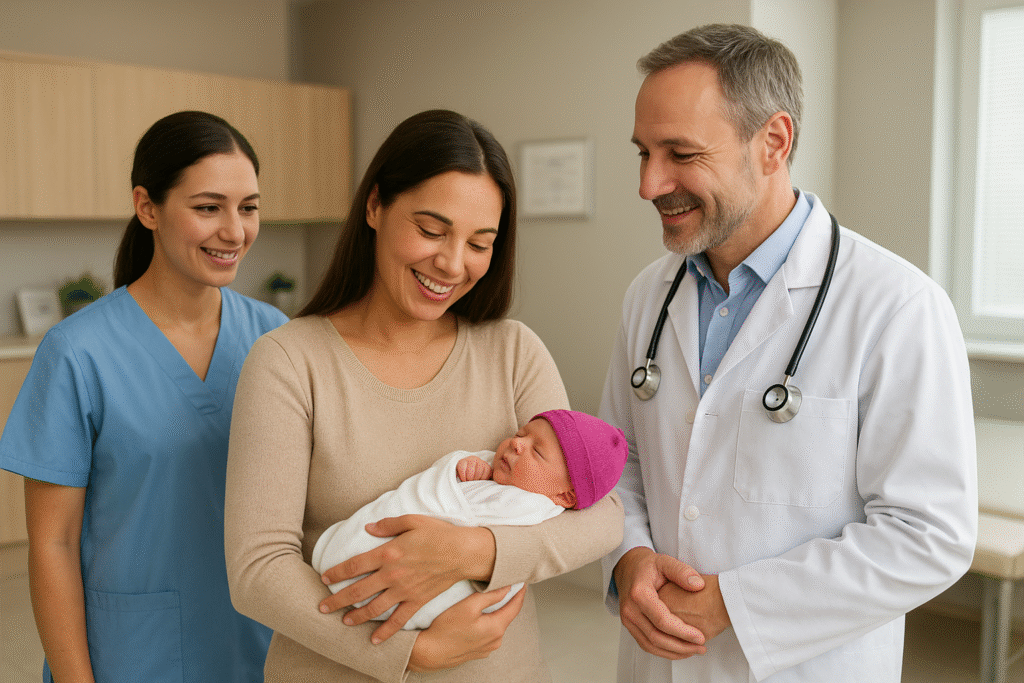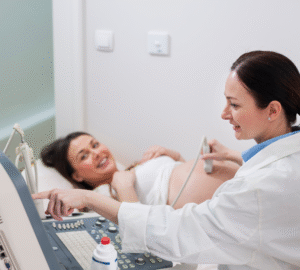A Guide from a Leading Womens and Childrens Hospital
Polycystic Ovary Syndrome (PCOS) is a common hormonal imbalance that affects millions of women worldwide. For many, the condition doesn’t end with childbirth — it evolves. Understanding PCOS after pregnancy is essential to managing long-term health, fertility, and hormonal balance.
At Karthika Woman and Child Care, a trusted womens and childrens hospital in Bangalore, our specialists provide comprehensive postnatal care for women struggling with PCOS. From managing hormonal fluctuations to optimizing diet and lifestyle with the help of a PCOS nutritionist near me, we offer an integrated approach that promotes recovery, balance, and well-being.

Womens and Childrens Hospital Insight: Understanding PCOS After Pregnancy
Pregnancy can temporarily regulate hormones and improve symptoms of PCOS, but after delivery, many women notice the condition re-emerging or changing in pattern.
PCOS causes include a mix of genetic, environmental, and hormonal factors — primarily involving insulin resistance and androgen excess. After childbirth, hormonal fluctuations and lifestyle changes can influence how these factors manifest, leading to irregular periods, acne, weight gain, or mood swings.
Karthika Woman and Child Care emphasizes personalized postpartum screening and management strategies to help women adapt effectively to these changes. If you’ve been diagnosed with PCOS before pregnancy or are noticing symptoms afterward, our specialists recommend booking an appointment through our Gynaecology Appointment page.
Hormonal Changes Postpartum: The Science Behind PCOS After Pregnancy
The postpartum phase is one of the most hormonally dynamic periods in a woman’s life. Estrogen and progesterone levels drop dramatically after delivery, while prolactin levels increase to support breastfeeding.
For women with PCOS, this shift can trigger several outcomes:
- Return of Irregular Cycles: As menstruation resumes, cycles may again become unpredictable.
- Insulin Sensitivity Changes: Insulin resistance may worsen, increasing the risk of weight retention and fatigue.
- Androgen Fluctuations: Elevated testosterone levels can lead to acne or hair loss.
These PCOS causes make it important to monitor hormonal balance closely after giving birth. Our endocrinology and gynecology experts at Karthika Woman and Child Care use hormone profiling and customized nutrition support to manage such transitions.
If you’re unsure when to test hormone levels after delivery, our specialists recommend consulting early — schedule your visit online through our contact page.
Breastfeeding & PCOS: How It Affects Hormones and Weight
Breastfeeding can be beneficial for women with PCOS after pregnancy. The process naturally increases prolactin production, which can help regulate ovulation and reduce androgen levels. It also enhances calorie expenditure, supporting postpartum weight loss.
However, breastfeeding challenges like low milk supply can sometimes occur in PCOS patients due to hormonal imbalances. The caring staff at our womens and childrens hospital provide lactation counseling and dietary advice to promote optimal milk production.
Tips for Managing PCOS While Breastfeeding
- Eat Balanced Meals: Focus on low-glycemic foods to stabilize blood sugar.
- Stay Hydrated: Adequate water supports milk flow and hormone regulation.
- Consult a Nutrition Expert: A PCOS nutritionist near me can help design a lactation-friendly and hormone-supportive meal plan.
Our in-house nutrition experts at Karthika Woman and Child Care collaborate with gynecologists and endocrinologists to ensure both you and your baby thrive during this stage.
Managing Symptoms: A Holistic Womens and Childrens Hospital Approach
After pregnancy, PCOS symptoms may manifest differently than before. Some women experience temporary relief during pregnancy, while others face renewed challenges postpartum.
At Karthika Woman and Child Care, symptom management includes:
1. Medical Evaluation
A gynecologist may recommend a PCOS re-evaluation 3–6 months postpartum. Tests like fasting insulin, glucose tolerance, thyroid levels, and ultrasound imaging can reveal underlying hormonal shifts.
2. Nutrition and Lifestyle
Working with a PCOS nutritionist near me helps manage insulin resistance, mood, and metabolism. Foods high in fiber, lean protein, and healthy fats can reduce inflammation and regulate hormones.
3. Exercise & Stress Management
Gentle postpartum exercises like yoga and walking help restore balance. Stress reduction through mindfulness or therapy can improve hormonal stability.
4. Targeted Treatments
Depending on your needs, your doctor may recommend medications for insulin control or hormone balancing.
If symptoms persist or worsen, we recommend connecting with our specialists through the PCOS care page for a detailed consultation.
When to Test Again: Understanding Postpartum PCOS Evaluation
Knowing when to test again is vital for long-term management. Many women assume that once they’ve had a baby, PCOS is resolved — but hormonal issues can persist silently.
Experts at Karthika Woman and Child Care suggest the following timeline:
- 6 Weeks Postpartum: Initial health evaluation and discussion of any irregular cycles or fatigue.
- 3–6 Months Postpartum: Comprehensive hormonal testing for insulin, glucose, and androgen levels.
- Annually: Ongoing checkups to monitor PCOS symptoms, fertility health, and metabolic risk factors.
By staying proactive, women can prevent long-term complications like diabetes, cardiovascular issues, or infertility recurrence.
To book your follow-up test or consultation, visit our Gynaecology Appointment page or call us directly through our contact section.
Postpartum Weight & Lifestyle Tips: Reclaiming Your Balance
Weight management plays a crucial role in PCOS after pregnancy. The body’s metabolism often slows down postpartum, especially when combined with sleep deprivation and reduced activity.
Here are some clinically recommended tips from our womens and childrens hospital experts:
1. Prioritize Balanced Nutrition
A PCOS nutritionist near me can guide you toward a low-GI diet rich in whole grains, vegetables, and omega-3 fats. Limiting processed sugars and refined carbs helps balance insulin levels.
2. Stay Consistent with Movement
Simple postpartum workouts like brisk walking or light strength training can enhance energy and reduce insulin resistance. Always consult your gynecologist before starting exercise routines.
3. Sleep & Stress Management
Lack of sleep can worsen insulin resistance and trigger hormonal imbalances. Meditation, light stretching, or short naps can help regulate cortisol levels.
4. Routine Medical Care
Even when symptoms feel under control, scheduling periodic checkups at your womens and childrens hospital ensures early detection of potential hormonal issues.
5. Seek Expert Support
If you’re unsure where to start, Karthika Woman and Child Care offers an integrated care program for PCOS after pregnancy, combining gynecology, endocrinology, and nutrition expertise.
Commercial Insight: Why Choose Karthika Woman and Child Care
Karthika Woman and Child Care isn’t just a healthcare provider — it’s a comprehensive womens and childrens hospital built on compassion, expertise, and technology.
Our specialized PCOS care programs address everything from diagnosis to lifestyle support. With access to skilled gynecologists, nutritionists, and reproductive health experts, we help women overcome PCOS challenges even after pregnancy.
Our services include:
- Advanced gynecological testing and treatments
- Personalized dietary and lifestyle coaching
- Postpartum and fertility-focused care plans
- Childbirth recovery and lactation support
Visit our website karthikawomanandchildcare.in to explore all services and book an appointment with our specialists. OR call +91 99459 26987



